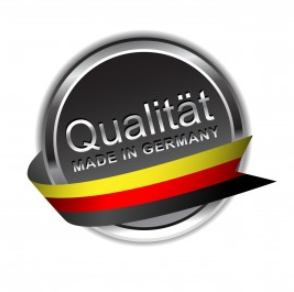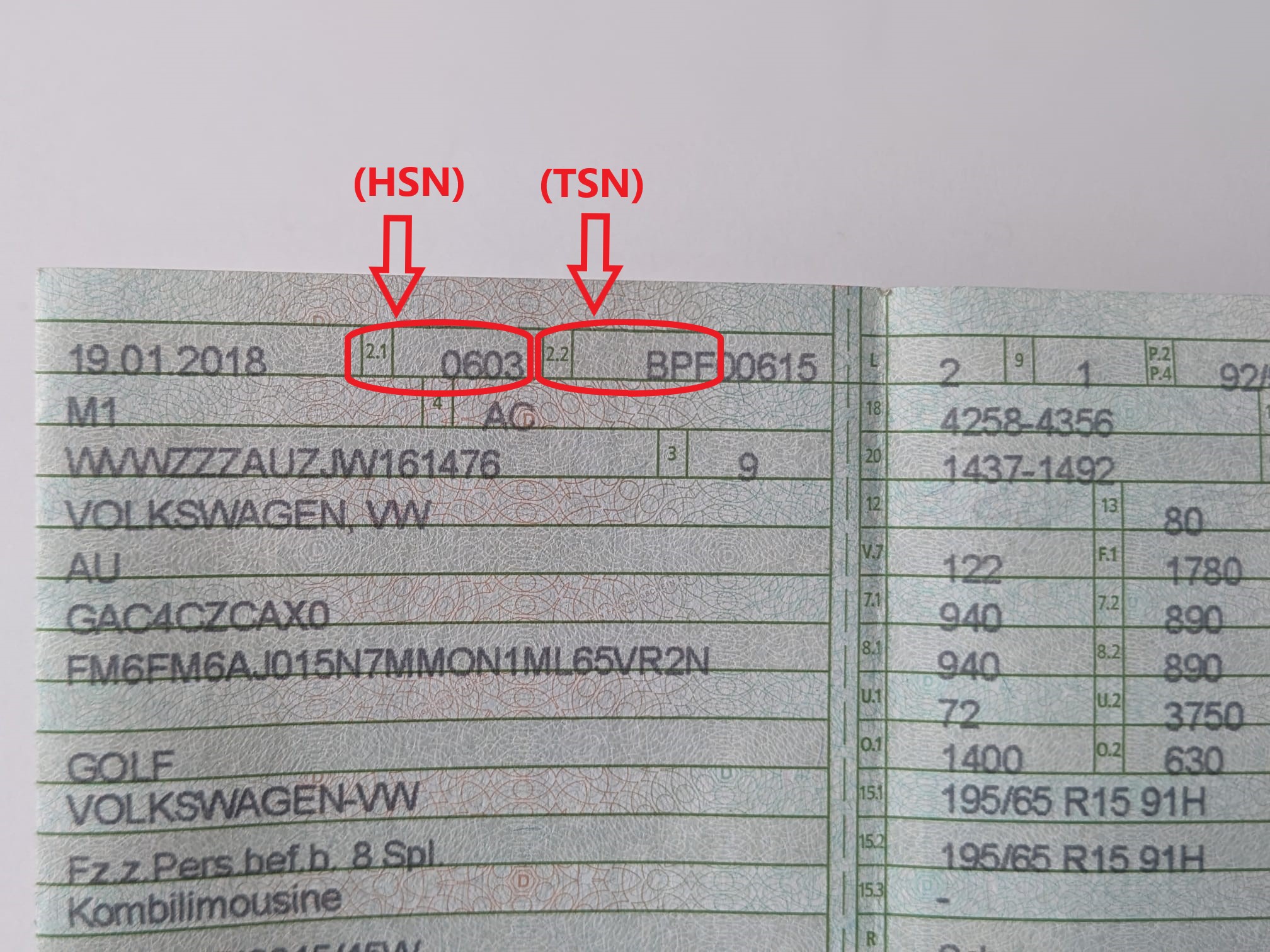Lightened Flywheel Audi B5 S4 RS4 Audi A6 2.7T Trigger Crown / Wreath Flywheel 415016010 Light Steel
- ✓ Audi engines
- ✓ 240 clutch
- ✓ lightens 8.6 kg
£249.93*
- Easy TÜV registration
- Quality Made in Germany
- Fair prices without middlemen you buy directly from the manufacturer and developer of the product
- Worldwide no. 1 in tuning adapters
- 15 years expert knowledge
- 10 years warranty
Lightened high-strength flywheel made of chrome molybdenum with integrated trigger crown / wreath.
Suitable for the following Audi (B5, C5) models:
- Audi RS4 B5
- Audi S4 B5
- Audi A6 2.7T
- Audi A6 Avant 2.7T
- Audi Allroad 2.7T
Manufacturer number:
- 415 0160 10
Advantages of our lightened single mass flywheel:
- our flywheel weighs only 9,2 kg, the standard wheel over 12.0 kg
- all our flywheels are made of chrome moly steel with quality G 1.75, extremely suitable for high-speed motors
- recognized for unlimited HP
- significantly better acceleration due to less inertia
- the engine runs faster
- More direct response behaviour
- suitable for motorsports, racing or serial vehicles
- lower fuel consumption
- significant reduction of the turbo lag
- precise fine balancing guarantees less load on the bearings
- including ring gear
- suitable for either a standard clutch or a high-performance clutch
- with integrated trigger crown / wreath
- Our flywheels are registration-free as they have no direct effect on the actual performance.
Delivery:
- 1x lightened high-strength flywheel made of chrome molybdenum with trigger crown / wreath for Audi RS4, S4, Audi A6 2.7T, Avant A6 2.7T, Allroad 2.7T
- including installation instructions
Only suitable in connection with the Sachs-Performance clutch pressure plate No.: 883082 999707
Our lightened flywheels are registration-free and therefore do not need to be registered.
Login
24 December 2023 17:37
41686 Martin L
Looks nice, haven't installed it yet. Would be happy if the crankshaft bolts were included to take out any doubt what bolts to use. Price is the best you can find for a single mass flywheel. I'll be using it on A4 b6 ASN 3.0 V6 quattro with a 2,5 tdi clutch plate and later installing it on the 2.7 biturbo swap with an improved clutch plate.
- Which screws can be used?
The original bolts can be reinstalled.
- Which clutch can be used with the Epytec flywheels?
In general, the original clutch including the pressure plate can continue to be used with our Epytec flywheels. Alternatively, sport or performance clutches can also be used, provided they match the original clutch in design, diameter, and spline specification.
Before purchasing, please confirm with the respective clutch manufacturer that the clutch is identical in design to the OEM version. If this is the case, it will be 100% compatible with our flywheels.
In many cases, we can also supply the appropriate components directly. Depending on the application, this means we can recommend and deliver a suitable clutch disc as well as a matching pressure plate that are optimally matched to our flywheels. Simply contact us for advice ? we will be happy to help and put together a suitable solution.
Important note on the use of single-mass flywheels
Many vehicles are equipped as standard with a dual-mass flywheel, which actively dampens engine vibrations. If a single-mass flywheel is used instead in combination with a standard OEM clutch, unwanted side effects may occur, as the original clutch is not designed to compensate for the lack of damping.
This may lead to the following issues:
- Shuddering and vibrations, especially at idle or low engine speeds
- Uneven take-off behavior
- Increased load on the clutch and transmission
- Accelerated wear of the clutch disc
- Partial noise generation, e.g. gearbox rattle
For the use of a single-mass flywheel, we therefore generally recommend a clutch disc designed for this application with reinforced torsion springs, along with a matching pressure plate. Only in this way can the missing damping of the original dual-mass flywheel be effectively compensated, ensuring smooth and durable operation.
- What is the friction coefficient of the flywheel?
In principle, the friction coefficient can be assumed to be at least the same as that of the original cast disc. Due to the higher alloyed steel, our pulleys are slightly better than the original cast pulley. Of course, the material of the friction disk also has a major influence here; this must be checked with the manufacturer of the friction disk
- What material are the flywheels made of?
The flywheel is made of 16MnCr (chromium molybdenum) steel, which means it has a density of 7.76 kg/dm³
- Does the flywheel have a TDC marking and other markings for the ignition?
The flywheel has no TDC marking, only the pin on the back, just like the original flywheel. Tip: To adopt the TDC marking, the original flywheel must be turned to the TDC point before disassembly and the new flywheel must be marked in exactly this position.
- Does the flywheel have the default unbalance or is it balanced to zero?
The flywheel is supplied with the default unbalance. Unbalance can be created as follows! We first balance the pulley to 0, then apply a test mass at the specified point, which corresponds exactly to the unbalance. The pulley is then balanced to 0 again with the test mass. If you now remove the test mass, you have exactly the specified unbalance.
- Do we only sell the ring gear / gearwheel of the flywheels?
No, we can only sell the flywheels complete.
- Why do I have to run in my clutch?
The principle of a clutch is similar to that of a brake system. The different materials / surfaces must first adapt to each other. This happens through friction. With standard clutches or organic linings, this happens relatively quickly, as the lining material is "softer" than with sintered metal linings.
- Should the starter motor be replaced when converting to a single-mass flywheel?
Yes, we recommend replacing the starter motor at the same time as converting to a single-mass flywheel (SMF), if it hasn't already been done.
The conversion slightly alters the engine's vibration and starting characteristics, which puts the starter motor under greater mechanical stress. A new or rebuilt starter motor ensures reliable starting and significantly reduces the risk of wear or starting problems.
Since the starter motor is easily accessible when replacing the flywheel anyway, the additional work is minimal, while the reliability and longevity of the entire system are significantly improved.
In conclusion: If the starter motor hasn't already been replaced, it should be replaced as a precaution when converting to a single-mass flywheel.
| Motor | Motorcode |
|---|---|
| 2.7 T quattro | C5|250PS(184KW) |
| 2.7 T quattro | C5|230PS(169KW) |
| 2.7 T quattro | 4B2|230PS(169KW) |
| 2.7 T | C5|230PS(169KW) |
| 2.7 T | 4B2|230PS(169KW) |
| 2.7 T quattro | 4B2|250PS(184KW) |
| 2.7 T quattro | 4B4|250PS(184KW) |
| 2.7 T | 4B4|230PS(169KW) |
| 2.7 T quattro | 4B4|230PS(169KW) |
| Motor | Motorcode |
|---|---|
| 2.7 T quattro | C5|250PS(184KW) |
| 2.7 T quattro | 4BH|250PS(184KW) |
| Motor | Motorcode |
|---|---|
| S4 quattro | 8D2|265PS(195KW) |
| S4 quattro | B5|265PS(195KW) |
| Motor | Motorcode |
|---|---|
| 2.7 T quattro | 4B5|250PS(184KW) |
| 2.7 T quattro | 4B6|250PS(184KW) |
| 2.7 T | 4B5|230PS(169KW) |
| 2.7 T | 4B6|230PS(169KW) |
| 2.7 T quattro | 4B5|230PS(169KW) |
| 2.7 T quattro | 4B6|230PS(169KW) |
| Motor | Motorcode |
|---|---|
| RS4 quattro | 8D5|380PS(280KW) |
| RS4 quattro | B5|380PS(280KW) |
| S4 quattro | B5|265PS(195KW) |
| S4 quattro | 8D5|265PS(195KW) |
| Motor | Motorcode |
|---|---|
| 2.7 T quattro | C5|250PS(184KW) |
| 2.7 T quattro | C5|230PS(169KW) |
| 2.7 T quattro | 4B2|230PS(169KW) |
| 2.7 T | C5|230PS(169KW) |
| 2.7 T | 4B2|230PS(169KW) |
| 2.7 T quattro | 4B2|250PS(184KW) |
| 2.7 T quattro | 4B4|250PS(184KW) |
| 2.7 T | 4B4|230PS(169KW) |
| 2.7 T quattro | 4B4|230PS(169KW) |
| Motor | Motorcode |
|---|---|
| 2.7 T quattro | C5|250PS(184KW) |
| 2.7 T quattro | 4BH|250PS(184KW) |
| Motor | Motorcode |
|---|---|
| S4 quattro | 8D2|265PS(195KW) |
| S4 quattro | B5|265PS(195KW) |
| Motor | Motorcode |
|---|---|
| 2.7 T quattro | 4B5|250PS(184KW) |
| 2.7 T quattro | 4B6|250PS(184KW) |
| 2.7 T | 4B5|230PS(169KW) |
| 2.7 T | 4B6|230PS(169KW) |
| 2.7 T quattro | 4B5|230PS(169KW) |
| 2.7 T quattro | 4B6|230PS(169KW) |
| Motor | Motorcode |
|---|---|
| RS4 quattro | 8D5|380PS(280KW) |
| RS4 quattro | B5|380PS(280KW) |
| S4 quattro | B5|265PS(195KW) |
| S4 quattro | 8D5|265PS(195KW) |
































